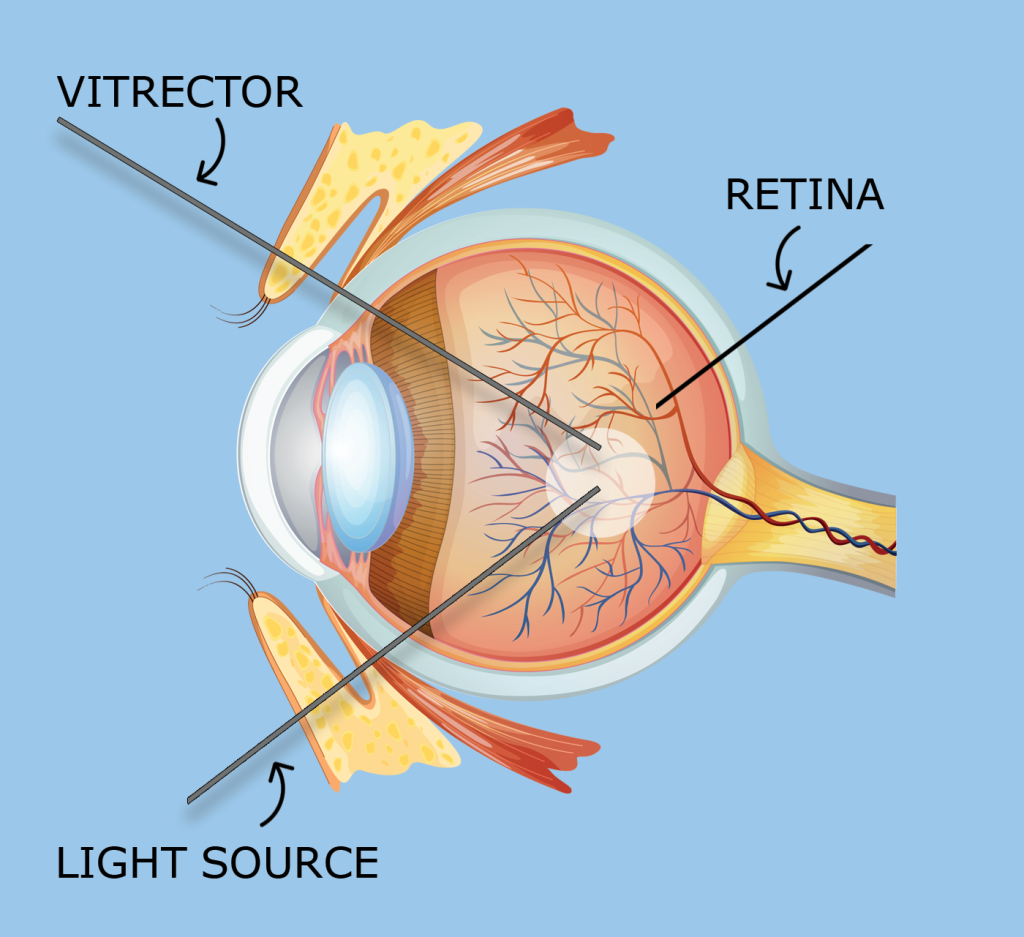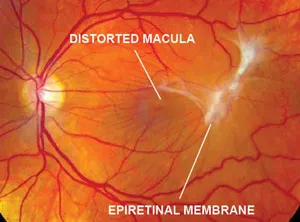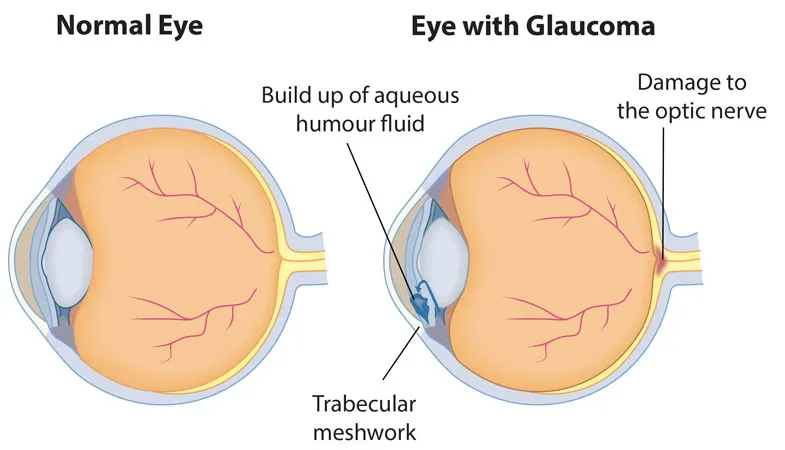Several eye conditions may necessitate a vitrectomy. Some of the common indications for this surgical procedure include:
- Retinal Detachment: Vitrectomy is often performed to repair a detached retina, where the vitreous gel is removed to allow the surgeon to access and reattach the retina.
- Diabetic Retinopathy: In advanced stages of diabetic retinopathy, the growth of abnormal blood vessels can lead to complications such as vitreous hemorrhage or traction on the retina, requiring vitrectomy.
- Macular Hole: A vitrectomy may be performed to repair a macular hole, a small break in the macula (central part of the retina) that can affect central vision.
- Epiretinal Membrane: Sometimes, scar tissue forms on the surface of the retina, causing visual distortion. Vitrectomy can be done to remove this epiretinal membrane.
- Vitreous Hemorrhage: Bleeding into the vitreous gel can occur due to various reasons, such as diabetic retinopathy or trauma. Vitrectomy may be performed to clear the blood and restore vision.
- Endophthalmitis: Severe eye infections, particularly those affecting the vitreous, may require vitrectomy to remove infected material and prevent the spread of infection.
- Macular Edema: In some cases of macular edema (swelling of the macula), vitrectomy may be considered to alleviate traction on the macula and improve visual outcomes.
- Proliferative Vitreoretinopathy (PVR): PVR involves the growth of abnormal membranes on the retina, leading to traction and retinal detachment. Vitrectomy is often performed to address this condition.
It’s important to note that the decision to undergo a vitrectomy depends on the specific characteristics and severity of the individual’s eye condition. An ophthalmologist will carefully assess the situation and recommend the most appropriate treatment approach, which may or may not involve vitrectomy.
Are you experiencing vision issues or in need of a comprehensive eye check-up? Trust your eyes to the expert care of Dr. Vaidya, a leading eye doctor in Mumbai.




